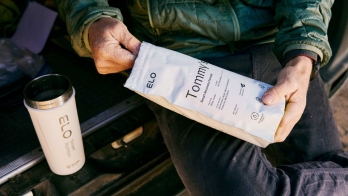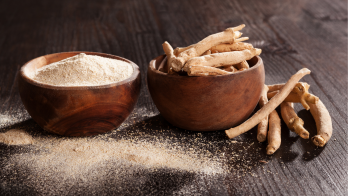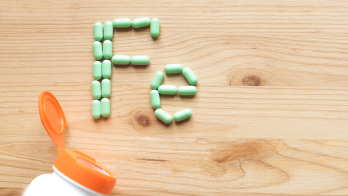Electrolytes, performance, and recovery: what’s the connection?
Electrolyte drinks are often touted as the gold standard for hydration, performance, and recovery. But does science support these claims? From health benefits to precautionary tales, here’s what you need to know about electrolytes.
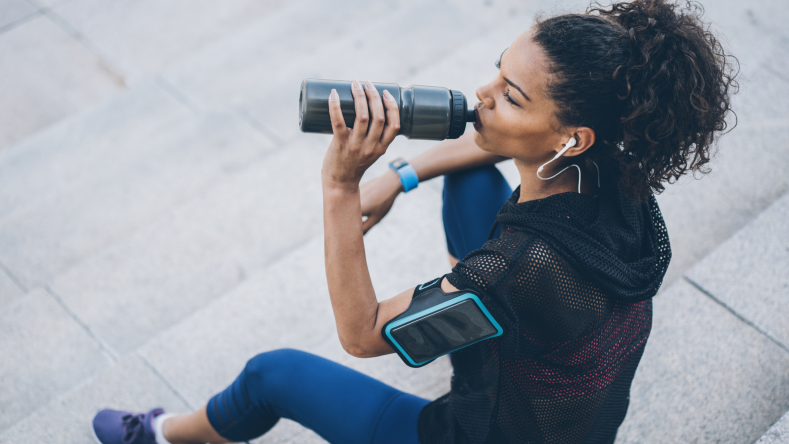
Whether you’re perusing the grocery aisle, hitting the gym, or scrolling on social media, chances are high that you’ve encountered your fair share of electrolyte drinks. It seems there is no shortage of neon beverage options available, as they are often marketed as a way to boost performance, enhance endurance, and speed up recovery time. But how do these claims stand up to the test of science? Here’s what you need to know about electrolytes, their health benefits, and subsequent imbalances.
What are electrolytes?
Electrolytes are minerals that carry an electric charge and help keep your body functioning properly. They do this by balancing the amount of water in your cells, keeping your pH levels stable, moving nutrients into your cells, removing waste from your cells, and ensuring your brain, heart, muscles, and nerves are performing well [ 1
Common natural electrolytes include sodium, potassium, chloride, magnesium
Electrolytes benefits
From muscle contractions to maintaining fluid levels, here’s what science has to say about electrolytes’ benefits.
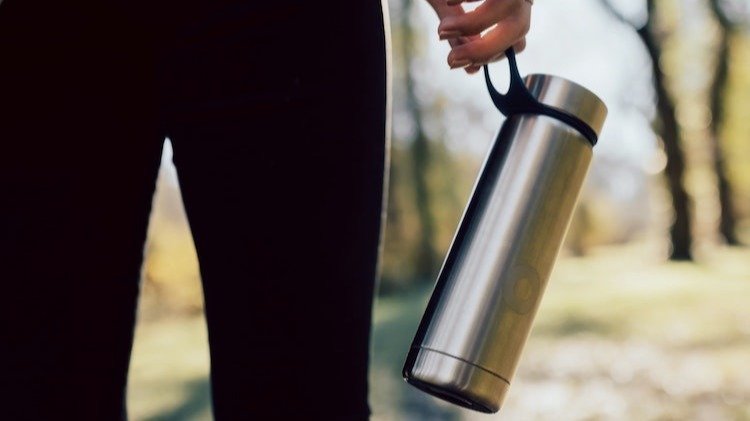
Boost hydration
Water is the most essential nutrient, so it’s important to ensure you’re getting enough fluids throughout the day (15.5 cups/day for men and about 11.5 cups/day for women).
However, staying hydrated doesn’t just rely on water intake alone–electrolytes play a key role in maintaining hydration levels throughout the body by directing the flow of water into and out of cells.
Studies have found that adding salt to fluids greatly improves fluid retention, especially when restoring fluid balance after significant electrolyte loss (which occurs with sweating, increased core temperatures, or exercise-induced breathing) [ 2 3
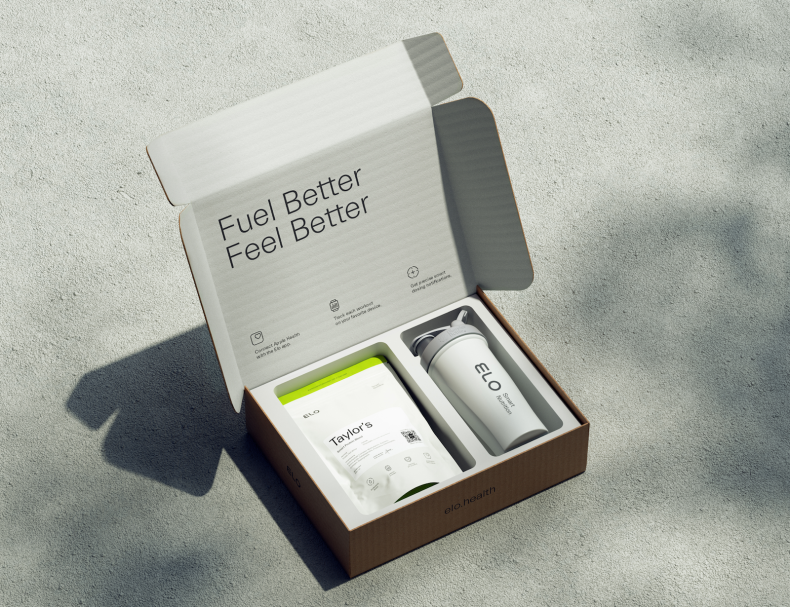
Enhance performance and post-workout recovery
Sports drinks are widely marketed as a fast solution for athletes to refuel after a hard workout. While this may seem like a clever marketing ploy, there is a lot of science to back it up.
Performance: Magnesium has been shown to have a positive impact on grip strength and lower-leg power and improve exercise performance by enhancing glucose availability in the brain, muscles, and blood [
4
]. Research also shows that low levels of potassium can contribute to muscle and whole-body fatigue, which may lead to decreased performance [5
].Recovery: Studies suggest that drinking a beverage with a mix of carbohydrates, protein, and electrolytes (such as sodium) can optimize water absorption, yield a faster recovery turnover, and may be more effective at enhanced performance and recovery than water alone [
6
,7
,8
]. As such, it’s encouraged for someone to focus on fluids and electrolyte consumption to facilitate recovery [3
].
If you’re looking to enhance performance and post-workout recovery, look no further than Elo Smart Protein. It’s the world’s most personalized protein powder that is meant for optimal post-workout recovery. Each blend is hand-mixed just for you and offers a personalized combination of highly bioavailable protein and functional ingredients (like electrolytes) based on your activity data, health goals, and dietary preferences.
Order your custom blend today
Support muscle contraction
Electrolytes play a major role in muscle function. Magnesium has been found to promote normal muscle function, contraction, and relaxation and can be used to treat muscle cramps [ 9 10
Regulate pH balance
Maintaining pH balance is crucial for overall health, as it helps minimize changes in your internal environment. If your body becomes too alkaline or too acidic, it can result in a variety of negative side effects. As such, having the right balance of electrolytes is crucial for maintaining your body’s natural pH balance [ 11
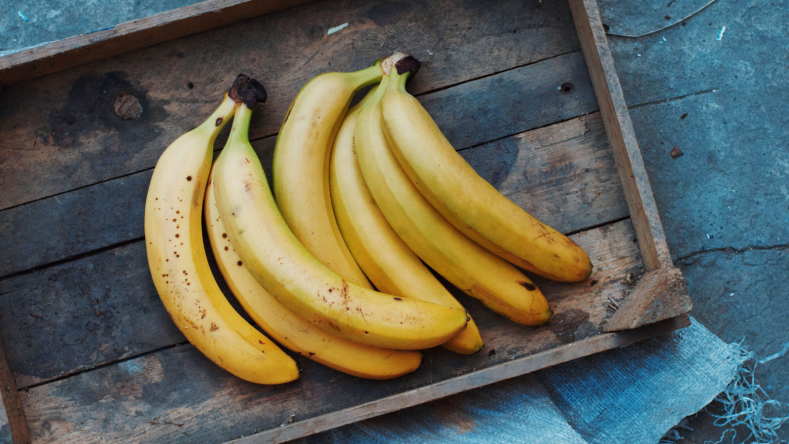
How to get electrolytes
Electrolytes balance is essential for your body to function properly. Not getting enough electrolytes can disrupt your fluid balance, leave you feeling tired or weak, and have significant consequences on athletic performance. You can replenish electrolytes through the following dietary sources.
Sodium: Pickled foods, eggs, cheese, and table salt
Chloride: Table salt
Potassium: Bananas, avocado, spinach, broccoli, beans, and lentils
Magnesium: Greens, nuts, seeds, dry beans, and whole grains
Calcium: Dairy products, fortified dairy alternatives, and green leafy vegetables
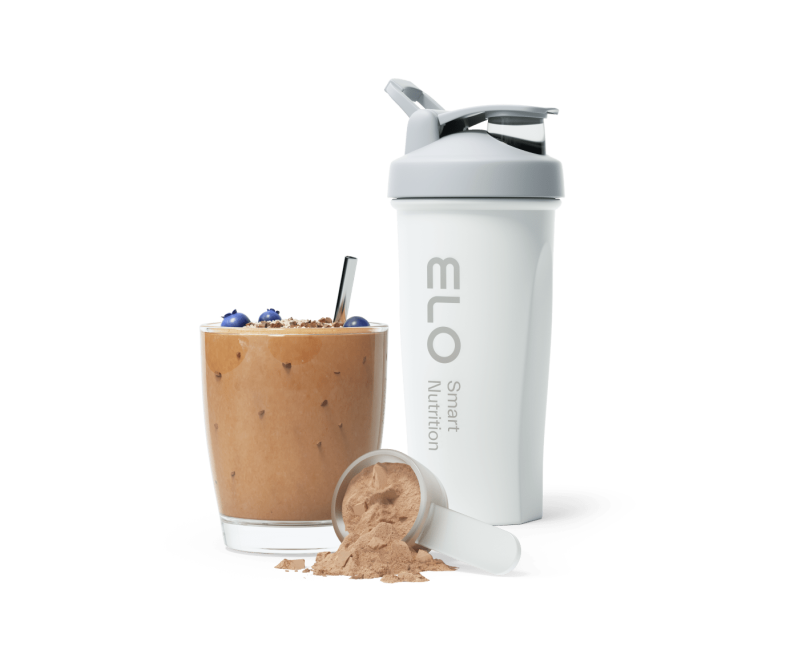
What drinks have electrolytes?
Drinks with electrolytes include Elo Smart Protein
However, be careful when selecting these products, as some may contain added sugars or other ingredients that can adversely affect health.
What causes an electrolyte imbalance?
An electrolyte imbalance can happen when your body has too much or not enough of certain minerals. This can happen from [ 12
fluid loss from heavy exercise or physical activity
dehydration caused by excess heat, vomiting, or diarrhea
medications such as diuretics, antibiotics, and laxatives
cirrhosis
heavy alcohol consumption or binge drinking
heart failure, high blood pressure, or cardiovascular disease
kidney disease
eating disorders
severe burns
some forms of cancer
Electrolyte imbalances can be dangerous and even life-threatening, as they can contribute to cardiac arrest and may hinder resuscitation efforts [ 13
Can you have too many electrolytes?
Yes, you can have too many electrolytes. Excess amounts can have an adverse effect on your health and can even be fatal in some cases. Here are some health implications of having too many electrolytes.
Hypernatremia (too much sodium): Hypernatremia can be caused by insufficient fluid intake or excessive water loss. Kidney disease, diabetes, and dementia can also increase the risk of hypernatremia. [
14
].Hyperkalemia (too much potassium): Hyperkalemia can negatively affect kidney function and cause cardiac arrhythmia, nausea, and irregular heartbeat [
15
,16
].Hypercalcemia (too much calcium): Hypercalcemia can lead to fatigue, excessive thirst, nausea, vomiting, heart palpitations, seizures, bone pain, and muscle weakness [
17
].Excess magnesium: This can cause stomach upset, nausea, vomiting, diarrhea, and abdominal cramping [
18
]. Though rare, more serious side effects include an irregular heartbeat, low blood pressure, confusion, slowed breathing, coma, and possibly death [19
].
Summary
Electrolyte drinks are often touted as the gold standard for hydration, performance, and recovery. And science agrees, stating that electrolytes can boost hydration levels, support muscle function, balance pH levels, and aid with performance and recovery. You can replenish electrolytes through dietary sources or electrolyte drinks (like Elo Smart Protein, electrolyte tablets, coconut water, or fruit juice). However, be careful that you don’t overdo it, as electrolyte imbalances can be dangerous and cause a wide range of health issues.
Disclaimer: The text, images, videos, and other media on this page are provided for informational purposes only and are not intended to treat, diagnose or replace personalized medical care.
Key takeaways
Electrolytes are minerals that help balance the amount of water in your cells, keep pH levels balanced, and maintain the function of your brain, muscles, nerves, and heart [
1
].Common natural electrolytes include sodium, potassium, chloride, magnesium, calcium, phosphate, and bicarbonates.
Some benefits of electrolytes include enhanced performance and recovery, hydration, muscle contraction, and pH balance.
Electrolyte imbalances can be caused by fluid loss from exercise, dehydration, certain medications, heavy alcohol consumption or binge drinking, eating disorders, and/or burns.
Excess amounts of electrolytes can have an adverse effect on your health and can even be fatal in some cases.
References
U.S. National Library of Medicine. (n.d.). Fluid and electrolyte balance. MedlinePlus. Retrieved December 19, 2022, from
https://medlineplus.gov/fluidandelectrolytebalance
Millard-Stafford, M., Snow, T. K., Jones, M. L., & Suh, H. (2021). The Beverage Hydration Index: Influence of Electrolytes, Carbohydrate and Protein. Nutrients, 13(9), 2933.
https://doi.org/10.3390/nu13092933
Shirreffs, S. M., & Sawka, M. N. (2011). Fluid and electrolyte needs for training, competition, and recovery. Journal of sports sciences, 29 Suppl 1, S39–S46.
https://doi.org/10.1080/02640414.2011.614269
Zhang, Y., Xun, P., Wang, R., Mao, L., & He, K. (2017). Can Magnesium Enhance Exercise Performance?. Nutrients, 9(9), 946.
https://doi.org/10.3390/nu9090946
Lindinger, M. I., & Cairns, S. P. (2021). Regulation of muscle potassium: Exercise performance, Fatigue and Health Implications. European Journal of Applied Physiology, 121(3), 721–748.
https://doi.org/10.1007/s00421-020-04546-8
Orrù, S., Imperlini, E., Nigro, E., Alfieri, A., Cevenini, A., Polito, R., Daniele, A., Buono, P., & Mancini, A. (2018). Role of Functional Beverages on Sport Performance and Recovery. Nutrients, 10(10), 1470.
https://doi.org/10.3390/nu10101470
Roberts, J. D., Tarpey, M. D., Kass, L. S., & Roberts, M. G. (2012). An investigative study into the influence of a commercially available carbohydrate-protein-electrolyte beverage on short term repeated exercise performance. Journal of the International Society of Sports Nutrition, 9(1).
https://doi.org/10.1186/1550-2783-9-5
Choi, D.-H., Cho, J.-Y., Koo, J.-H., & Kim, T.-K. (2021). Effects of electrolyte supplements on body water homeostasis and exercise performance during exhaustive exercise. Applied Sciences, 11(19), 9093.
https://doi.org/10.3390/app11199093
Magnesium, a treatment for leg cramps? NPS MedicineWise. (2014, February 27). Retrieved December 19, 2022, from
https://www.nps.org.au/news/magnesium-a-treatment-for-leg-cramps
.Lau, W. Y., Kato, H., & Nosaka, K. (2021). Effect of oral rehydration solution versus spring water intake during exercise in the heat on muscle cramp susceptibility of young men. Journal of the International Society of Sports Nutrition, 18(1).
https://doi.org/10.1186/s12970-021-00414-8
Hamm, L. L., Nakhoul, N., & Hering-Smith, K. S. (2015). Acid-Base Homeostasis. Clinical journal of the American Society of Nephrology : CJASN, 10(12), 2232–2242.
https://doi.org/10.2215/CJN.07400715
Electrolyte imbalance: Types, symptoms, causes & treatment. Cleveland Clinic. (n.d.). Retrieved December 19, 2022, from
https://my.clevelandclinic.org/health/symptoms/24019-electrolyte-imbalance
Part 10.1: Life-threatening electrolyte abnormalities. (2005). Circulation, 112(24_supplement).
https://doi.org/10.1161/circulationaha.105.166563
Hypernatremia: Causes, symptoms, and treatment. Medical News Today. Retrieved December 19, 2022, from
https://www.medicalnewstoday.com/articles/hypernatremia
Hyperkalemia. National Center for Biotechnology Information. Retrieved December 19, 2022, from
https://pubmed.ncbi.nlm.nih.gov/29261936/
Managing high potassium (hyperkalemia). National Kidney Foundation. (2020, August 20). Retrieved December 19, 2022, from
https://www.kidney.org/content/managing-high-potassium-hyperkalemia
Mayo Foundation for Medical Education and Research. (2022, March 23). Hypercalcemia. Mayo Clinic. Retrieved December 19, 2022, from
https://www.mayoclinic.org/diseases-conditions/hypercalcemia/symptoms-causes/syc-20355523
U.S. Department of Health and Human Services. (n.d.). Office of dietary supplements - magnesium. NIH Office of Dietary Supplements. Retrieved December 19, 2022, from
https://ods.od.nih.gov/factsheets/Magnesium-HealthProfessional/
WebMD. (n.d.). Magnesium: Overview, uses, side effects, precautions, interactions, dosing and reviews. WebMD. Retrieved December 19, 2022, from
https://www.webmd.com/vitamins/ai/ingredientmono-998/magnesium



